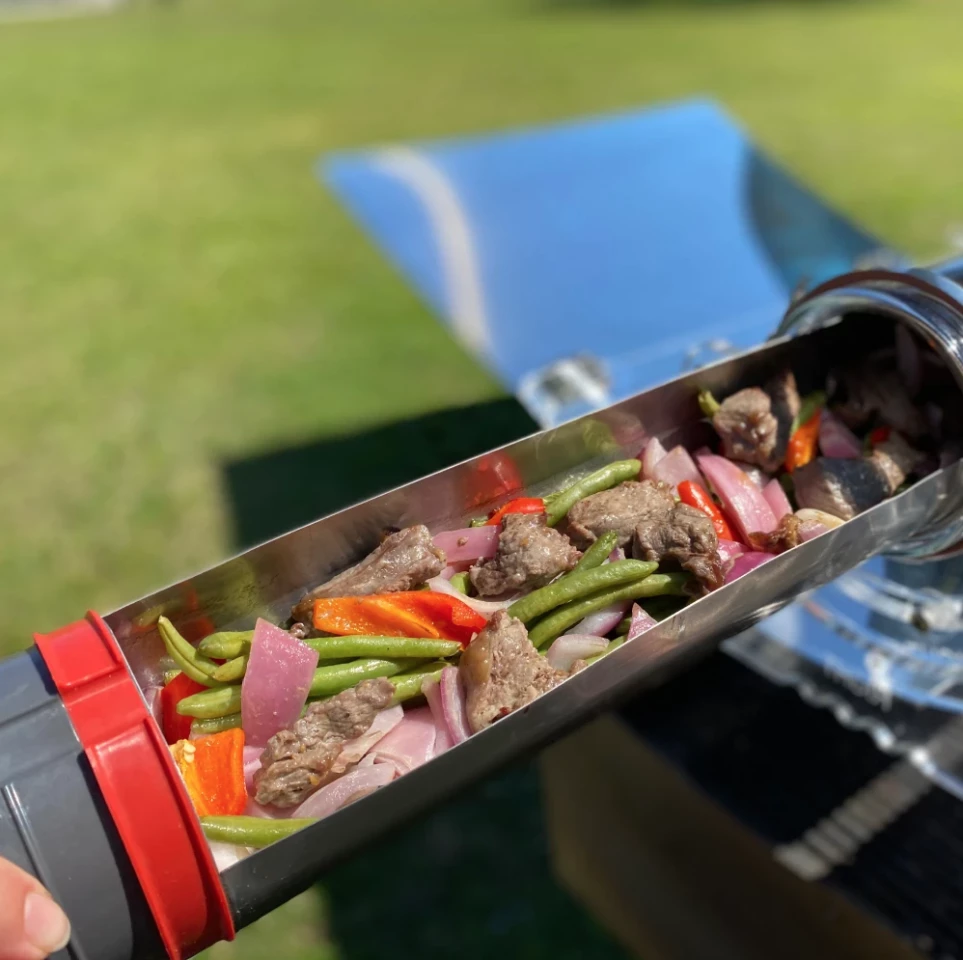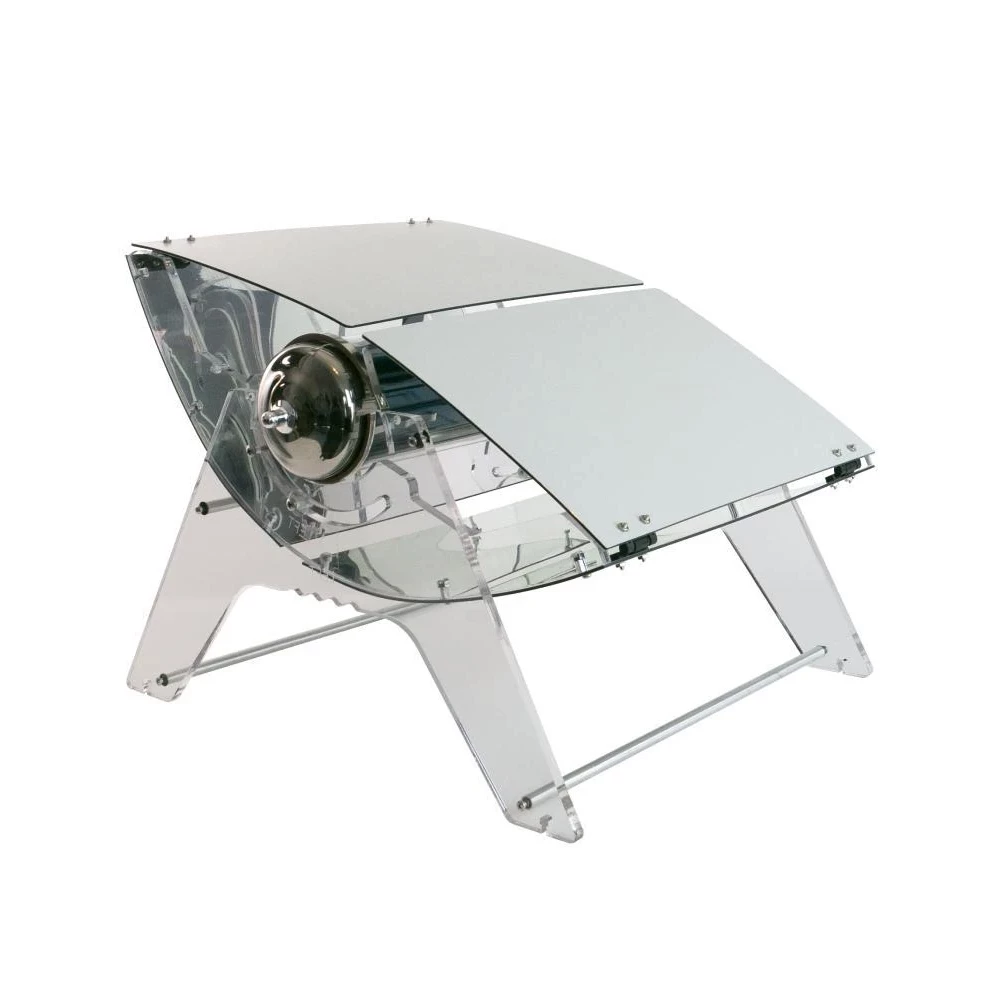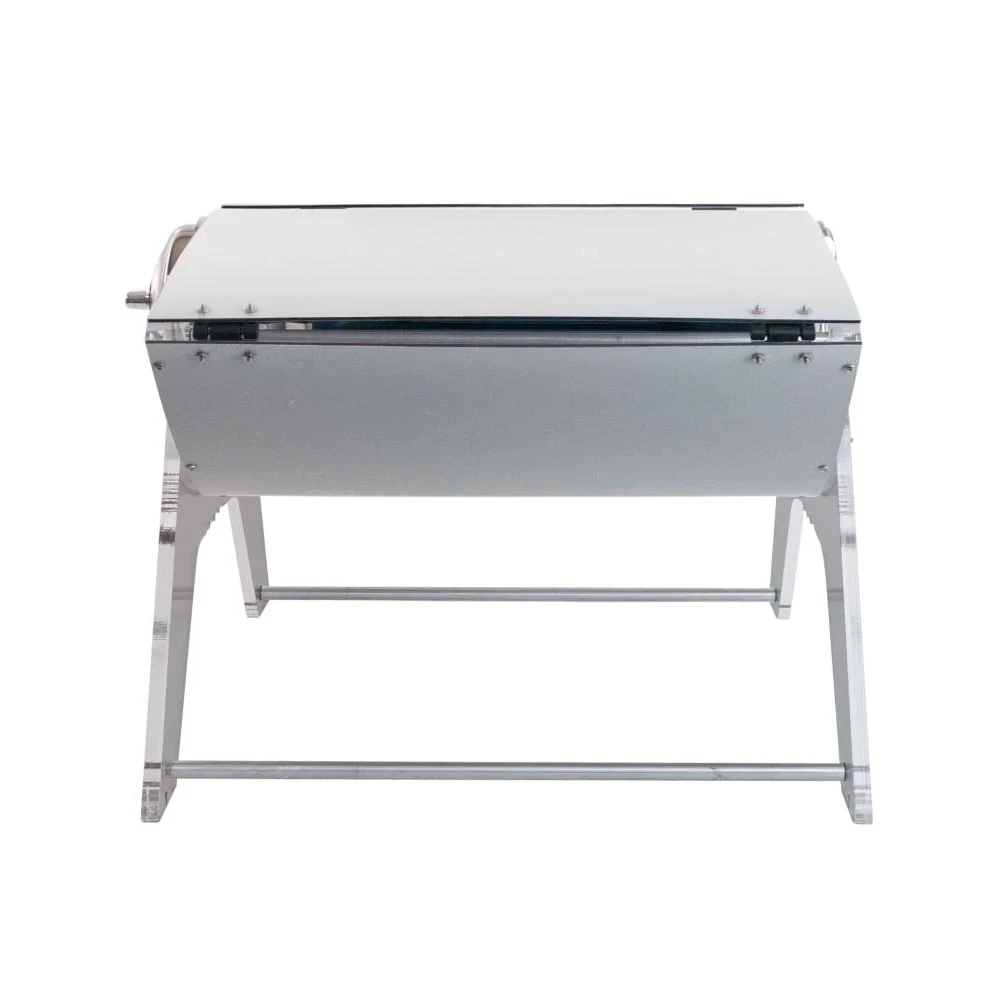For eight years or so, GoSun has been offering outdoor enthusiasts clean ways of cooking up their meals through a range of solar-powered stoves, grills and ovens. Its latest and greatest is billed as its fastest and most powerful yet, enabling it to reach fire-like temperatures, while creating no smoke or emissions.
Called the GoSun Sizzle, the company's new solar oven works on the same principle as its GoSun Fusion that was introduced in 2018. This involves a pair of large parabolic reflectors that collect the Sun's rays and concentrate the energy into an insulated vacuum tube, where the trapped heat cooks up the food inside.
With the larger, redesigned reflectors, the GoSun Sizzle is claimed to offer much quicker cooking times, with a power output of 325 W under full sunshine compared to the 225 W offered by the Fusion.
This can apparently enable a family of five to whip up a meal within 30 minutes. And when the Sun isn't shining, users can tap into a built-in heating element that can be hooked up to a 12-volt power source to bring the tube up to temperature, allowing it to be used under clouds and also at night.

All of this comes in a slightly larger package than the GoSun Fusion, with the GoSun Sizzle tipping the scales at 14 lb (6.3 kg) and measuring 25 x 24 x 16 in (63.5 x 60 x 40 cm). It is still designed with portability in mind, however, with the folding reflectors able to be packed down for storage and transport.
GoSun has slapped a US$800 price tag on its Sizzle solar-powered oven, which is quite a leap from the $430 asking price for the Fusion. You can check out the promo video below.
Source: GoSun









